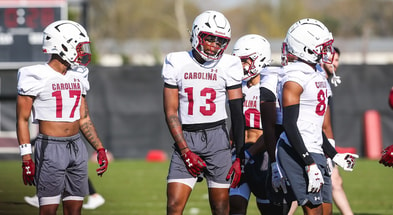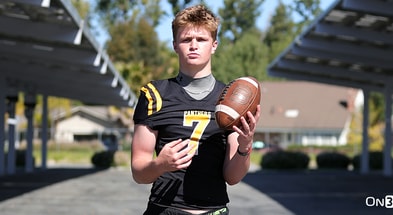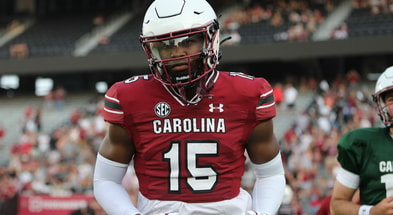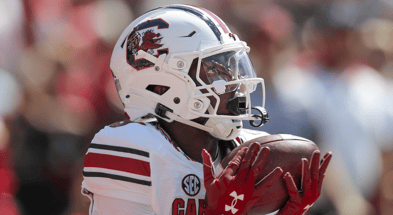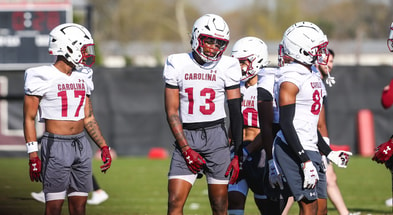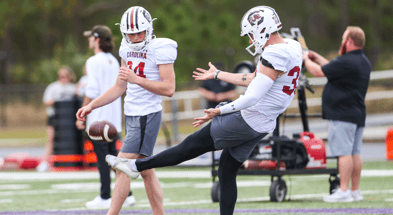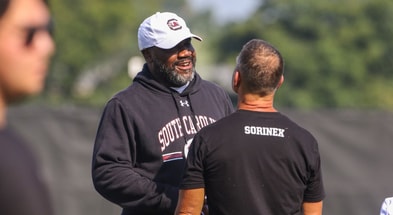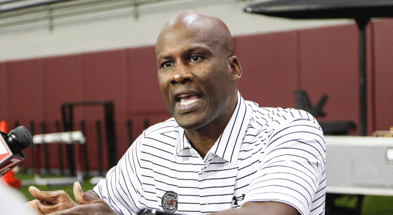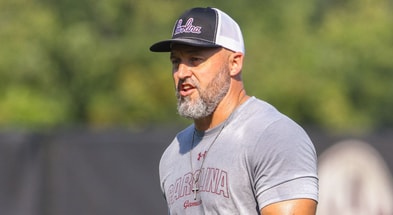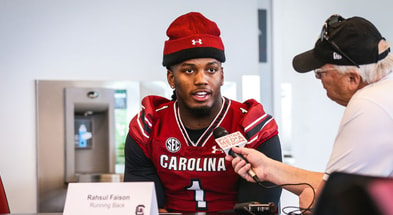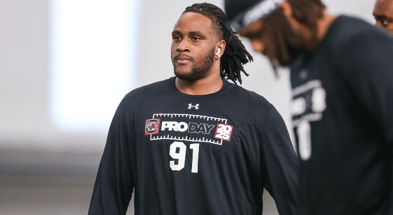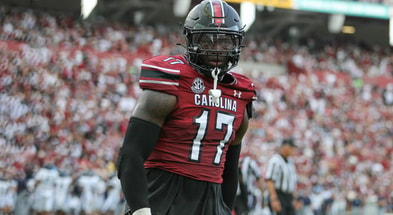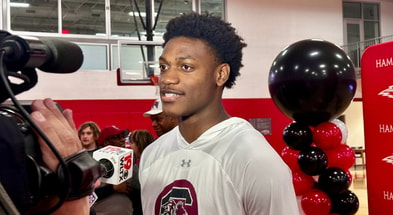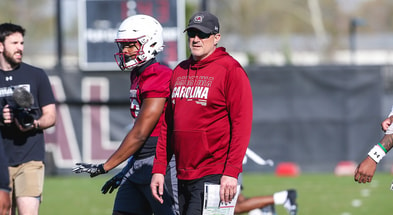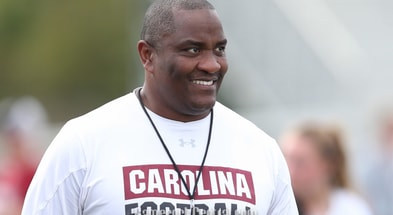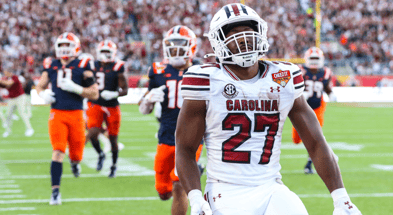David Spaulding shares benefits of ‘being like a pro’ in South Carolina’s secondary
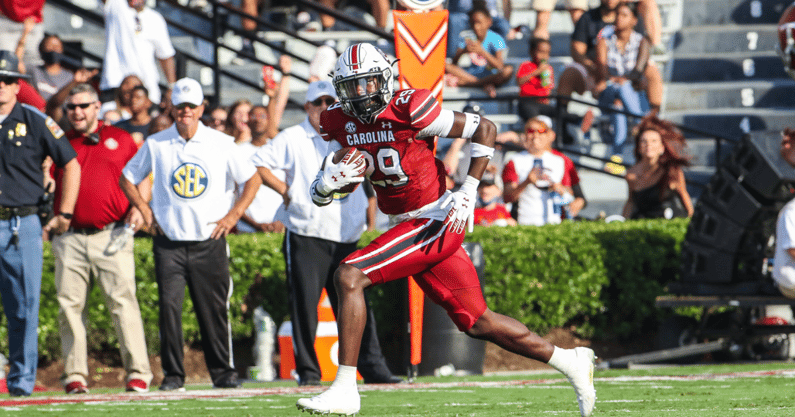
When Torrian Gray was brought on as South Carolina’s defensive backs coach in January 2021, his professional experience was an important deciding factor in the hire.
Before joining the Gamecocks’ coaching staff, Gray had two stints as a defensive backs coach in the NFL. He held that role with the Chicago Bears from 2004 to 2005 and the Washington football team in 2017 and 2018.
Gray also had a brief stint as a professional player, spending much of his time at safety. He played three seasons with the Minnesota Vikings before suffering a career-ending injury.
[VIP Tickets now available: Gamecock Central Kickoff Party 2023!]
Since then, he has developed dozens of players who have gone to the professional ranks. Everywhere Gray has gone – namely Virginia Tech, Florida, and South Carolina – he has helped players reach the next level.
David Spaulding is the latest player to see the benefits of Gray’s professional coaching mindset.
“Coach Gray has been a great coach. He’s just installed a lot of being like a pro. So basically, being a pro on and off the field, preparation, watching film. Like multiple hours of film, day in and day out,” Spaulding said. “It’s about what you know. He tells us we won’t be nervous if we’re prepared, so that’s knowing what’s coming before the play.”
Spaulding said one of the principles Gray has preached to young defensive backs is the importance of positional versatility.
Throughout his own career at South Carolina, Spaulding has lined up at both safety and nickelback. He acknowledged that playing multiple positions has enhanced his all-around game as a defensive back.
[Enter to win two FREE season tickets to football, MBB, WBB, and baseball from 107.5 The Game!]
“If you play corner, you know how I need to play this outside man, so when you play in the slot, there’s different splits. And then, playing safety, you know where your help is and things like that formation-wise. It all ties in as a DB because you want to know where your help is, what formation’s coming, things of that nature,” Spaulding said.
“Being experienced takes you a long way because you know what you’ve been through. Say, for instance, if you’ve been at corner, when you go transition to a different position, you have that in your bag, so it makes it easier to play a different position.”
Top 10
- 1
Maryland fans
Boo Kevin Willard
- 2New
Alex Condon
Injury update on Florida star
- 3
Kent State
FB HC on administrative leave
- 4
Buffs vs. Orange
Colorado AD on chances NCAA approves
- 5Trending
Top 25 CFB coaches
Greg McElroy releases list
Get the On3 Top 10 to your inbox every morning
By clicking "Subscribe to Newsletter", I agree to On3's Privacy Notice, Terms, and use of my personal information described therein.
According to Spaulding, another way defensive backs can develop professionally is by playing on special teams.
Spaulding, like many other players, began his collegiate career on special teams. During his redshirt freshman season at Georgia Southern, 24% of his snaps came on special teams. He has since climbed up the depth chart at South Carolina, where he will contend for the starting nickelback role this fall.
[Garnet Trust: “We Can Build Champions!”]
Spaulding sees special teams not only as an opportunity for playing time, but also another area to gain new skills. At South Carolina in particular, he has seen playing on special teams become a more popular choice for young players.
“Being on special teams is another key to success. If you’re not starting on offense or defense, on special teams, you’re going to get on the field. And coaches look at special teams because it’s important,” Spaulding said. “I will say it’s been a tremendous change in people asking and meeting with Coach Lembo extra, just knowing football with him, because we have one of the best special teams in the country.”
Spaulding said playing on special teams can lead to long-term success as well. He named Vikings tight end Nick Muse and Dallas Cowboys wide receiver Jalen Brooks as recently-turned professional players who have benefitted from playing special teams in college.
“It’s a big, tremendous deal because when you get to the NFL, do you have special teams history?” Spaulding said. “Jalen Brooks – he probably played on all the units – so it helped his draft stock. So being able to play special teams, if you’re not that guy, the one in the first round, it’ll help you out in the long run.”


